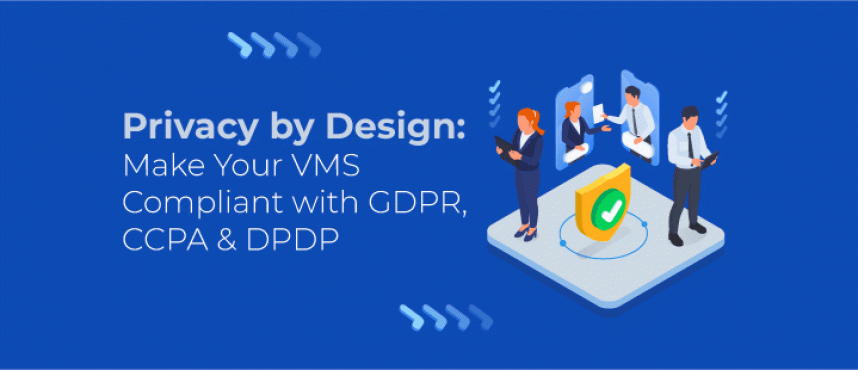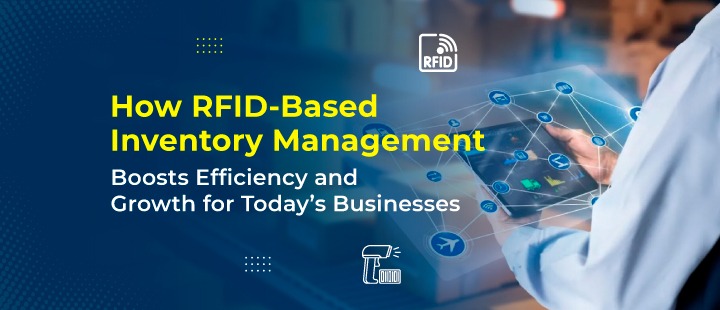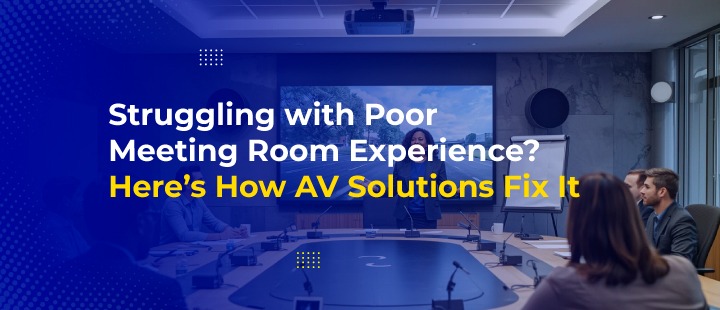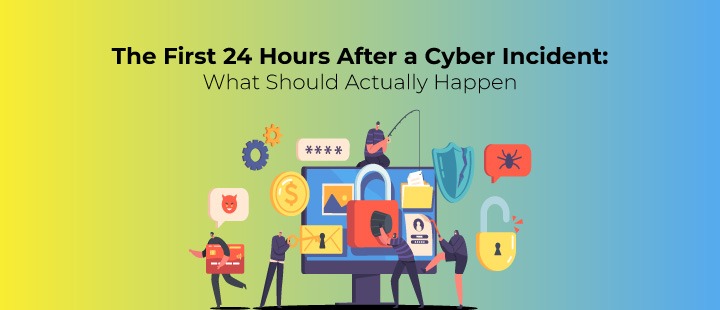Privacy by Design: Make Your VMS Compliant with GDPR, CCPA & DPDP
In today’s workplace, visitor data isn’t just about names and badges; it’s sensitive information that must be handled responsibly and with strict privacy laws like the General Data Protection Regulation (GDPR) in Europe, California Consumer Privacy Act (CCPA) in the U.S., and India’s Digital Personal Data Protection Act (DPDP) coming into effect, how businesses manage this data has become a serious compliance priority.
For IT managers, HR, and facility managers, one area that often gets overlooked is the Visitor Management System (VMS). While these systems are essential for securing physical premises, they also collect personal information, which makes them subject to privacy regulations.
Here’s what businesses need to know.
Why Privacy Matters in Visitor Management?
When a visitor signs in at the reception physically or digitally, they may provide their name, contact details, organization, government ID, and even biometric data (in some cases). This data often gets stored, shared, and sometimes forgotten.
Failing to handle this data correctly can lead to:
- Legal fines and penalties
- Loss of customer and employee trust
- Negative brand reputation
- Data breaches or misuse
With privacy laws tightening around the world, building privacy by design into your visitor management process is no longer optional.
What Does “Privacy by Design” Really Mean?
“Privacy by design” is a principle that encourages companies to integrate data protection into their systems and processes from the beginning, it’s a proactive approach to protect data and build trust among clients.
For VMS, this means designing the system to collect only what’s necessary, store it securely, use it transparently, and delete it responsibly.
Key Privacy Regulations Your VMS Must Comply With
1. GDPR (Europe)
- Requires explicit consent from the visitor before collecting personal data
- Limits data collection to only what’s necessary
- Demands clear communication on how the data will be used
- Requires the ability to delete or export a visitor’s data upon request
- Applies to any company dealing with EU citizens, even if based outside Europe
2. CCPA (California)
- Gives visitors the right to know what data is being collected and why
- Allows them to opt out of data sharing with third parties
- Requires clear opt-in for the sale of personal data
- Mandates businesses to delete data upon request
- Applies to businesses that serve California residents and meet certain thresholds
3. DPDP (India)
- Enforces consent-based data collection
- Requires businesses to appoint a Data Protection Officer (in some cases)
- Encourages safe transfer and storage of personal data
- Mandates businesses to respond to user grievances around their data
- Applies to Indian entities and any global businesses handling Indian user data
How a Privacy First VMS Helps
If you’re implementing or upgrading your visitor management system, look for the following features to ensure compliance:
– Consent Collection at Entry
Visitors should be informed why their data is being collected and must provide clear consent before proceeding, especially if data like photo IDs or biometrics are being captured.
– Customizable Data Fields
Limit the information you collect to only what’s essential. For instance, you may not need a phone number if the host already has it.
– Automatic Data Deletion
Set retention periods so that visitor data is automatically deleted after a set time (e.g. 7, 30, or 90 days) in line with your company policy and local laws.
– Secure Data Storage
Ensure all visitor data is encrypted at rest and in transit. Use secure, region-compliant data centers to host the VMS.
– Data Access Logs
Track who accessed visitor information and when. As it’s important for audits and internal accountability.
– Data Export & Deletion on Request
Make it easy to search for, export, or delete a visitor’s data if requested under GDPR, CCPA, or DPDP rights.
Best Practices:
- Train your front desk staff on privacy procedures and what to do when a visitor asks about their data
- Regularly audit your VMS to ensure data is not being stored longer than necessary
- Review your privacy policy and make sure it covers visitor data collection
- Work with a digital infra partner who understands regional compliance needs and can help customize your VMS accordingly
Final Thoughts
Privacy isn’t just a legal requirement, it’s a responsibility. As more companies adopt digital tools for managing workplace operations, data privacy must be at the core of every system, including something as routine as visitor check-in.
By choosing a privacy-first Visitor Management System, you’re not only staying compliant with GDPR, CCPA, and DPDP but also you’re showing your employees, guests, and partners that their data is safe with you.
Need help selecting or customizing a compliant VMS for your organization?
Team Network Techlab offers secure, scalable visitor management solutions built with data protection in mind. From setup to policy alignment, we’re here to help you stay ahead of privacy regulations.









